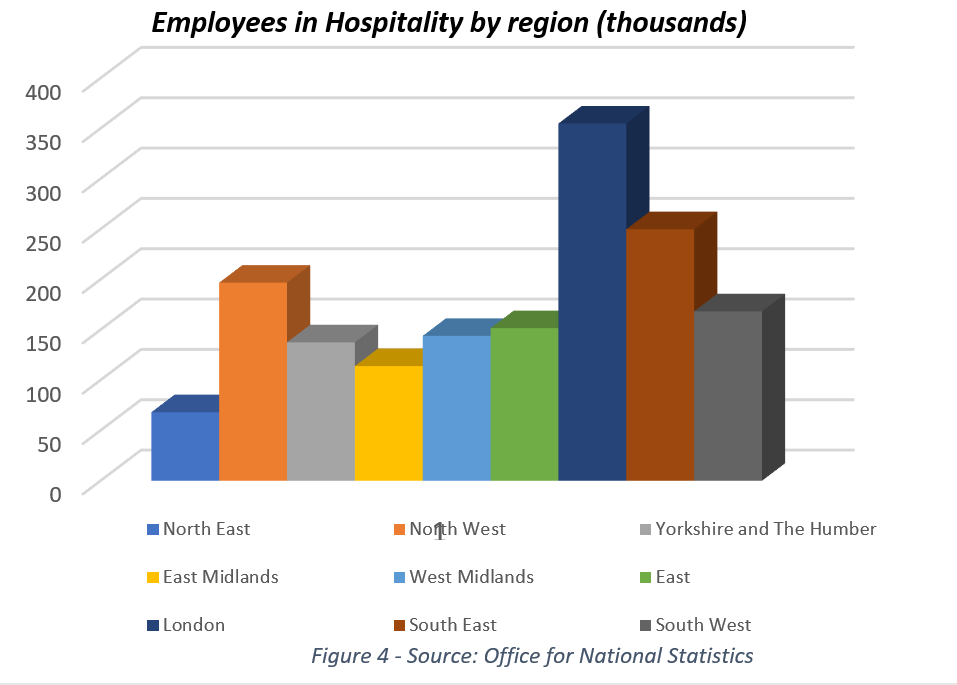Dr Thomas Kyritsis is Programme Director of Birkbeck and Le Cordon Bleu’s BBA Culinary Industry Management and MSc Culinary Innovation Management. He has received a first class BA (Hons) in International Hotel Management and a MA in Hospitality Management with distinction from the University of West London before pursuing a PhD on the impact of shareholder activism on the corporate boards of international hotel chains.

Le Cordon Bleu is known for helping shape the careers of some of the best chefs, food enthusiasts, and hospitality professionals around the world. Recently, more chefs are developing their own brands, setting up businesses, and moving from restaurants into retail.
This entrepreneurial route has become a strong motivating factor for students to pursue a career in hospitality. Market research and developing an instinct for the latest trends is part of the journey to become an entrepreneur. Here are a few trends we predict that aspiring food entrepreneurs should bear in mind for 2022.
Informality
A formal service is no longer as attractive to consumers and instead they are going for dining experiences that offer a relaxed service and environment. At the high-end, it has become about paring things back and simplicity. Less is more, and there is an even stronger focus on quality. There is also a notable shift towards greater engagement between staff, guests, and the food. People have a genuine interest in the menu and provenance has become important. Going forward, more fine dining businesses will try focusing on informality and accessibility.
Sustainability
Consumers are aware of the impact food production causes to the environment, and their choices are influenced by the extent that restaurants adopt sustainable and ethical practices. This is not just a fad – the Sustainable Restaurant Association was launched in 2010 with just 50 members, nowadays it has more than 7,000! Articles about the UK’s best sustainable restaurants are frequently featured in online food and travel resources. There will continue to be more transparency about where restaurants are getting their food from, how they engage with or support local producers, and how aspects such as food wastage are handled.
Digital Experience
Fast food, fast casual, casual, and grab-and-go concepts have become more digital, impacting the way we pay and order but also how brands engage with customers. Mobile ordering and contactless payments are standard practices; so, what comes next? Companies are exploring innovations that will transform them digitally. For example, Chilango recently opened its first digital-only venue in Croydon, including a fully digital ordering system. McDonald’s has tested AI which scans license plates with which to, with customers’ permission, predict orders and has also tested the idea of voice assistants to improve its drive-thru experience.
Membership Models
Many restaurants have, out of necessity, toyed with the concept of membership or subscription services. In the UK, M Restaurants offers its members exclusive access to their lounges and benefits such as complimentary breakfast, discounts on food and access to events such as masterclasses, tastings and talks. In the US, Michelin-starred restaurant Quince in San Francisco has created a membership based-model with its sister restaurants and its affiliate farm, Quince & Co, offering members a dining credit, quarterly boxes with seasonal produce and pantry products, and educational workshops.
Home Delivery/Meal Kits
The online delivery market was increasing at a significant rate before Covid-19, and during the pandemic it became even bigger and more important for hospitality operators. The pandemic also led to the growth of DIY meal kits. These meal kits have given the opportunity for many hospitality operators to diversify their revenue streams. Casual food brands as well as fine dining have both been embraced by consumers. Although many believe that the re-opening of the sector will slow down the DIY meal kit market, we believe that more operators will explore this avenue.






